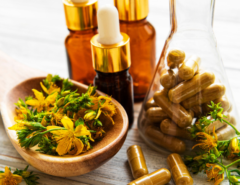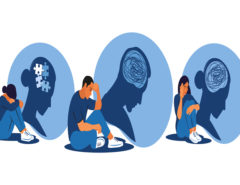“My doctor just gave me a new medicine to take; can I drink alcohol with it?”
This is how many conversations begin for us as poison specialists at the Maryland Poison Center (MPC). The answer to the question can vary depending on the medicine, but usually our response is the same –“In moderation, it is likely okay.” That’s right, one or two beers or glasses of wine will likely not hurt you with some medicines. Of course, there are exceptions to that rule, which is why it is a good idea to call an expert either at your pharmacy, doctor’s office, or the poison center to double check.
Below, let’s take a look at some of those exceptions.
Acetaminophen
This is one of the more well-known drug interactions that we are called about. A few drinks after taking Tylenol for a headache isn’t a big deal, but for someone who takes Tylenol regularly, such as someone with arthritis, and drinks alcohol daily, there could be a risk for liver damage.
Medicines in this category include more than 600 over-the-counter (OTC) medicines, such as cough and cold medicines that contain acetaminophen. It is important to look at the active ingredient list on the OTC medicine labels to check for acetaminophen. Some prescription pain medicines also contain acetaminophen. This may be noted on the prescription label as “APAP” or “ACET”.
Antibiotics
Some medicines used to treat infections can cause a reaction when taken with alcohol. While the reaction may not be severe, people can expect some significant side effects that could include flushing, nausea, vomiting, and a pounding headache.
Some medicines in this category are: Flagyl (metronidazole), Tindamax (tindazole), and griseofulvin.
Antidepressants
Antidepressants work by altering chemical imbalances in the brain. Alcohol can also affect the chemicals on which antidepressants act, which can lead to worsening depression.
Some medicines in this category are: Zoloft (sertraline), Lexapro (escitalopram), Wellbutrin (bupropion), and Effexor (venlafaxine).
Anxiety and Sleep Medicines
These medicines often cause drowsiness as part of how they work. It is not a good idea to drink alcohol when taking these medicines because alcohol can make drowsiness worse. This drowsiness can last for some time and may impair your ability to drive and function during the day.
Some medicines in this category include: Xanax (alprazolam), Valium (diazepam), Ativan (lorazepam), and Ambien (zolpidem).
Blood Pressure Medicines
While many blood pressure medicines are not affected by alcohol, there are a few medicines that can lower blood pressure too much when combined with alcohol.
Some of these medicines include: Nitrostat (nitroglycerine), Isordil, and Imdur (isosorbide).
Blood Thinners
Patients taking warfarin have their international normalized ration (INR) regularly monitored to see how thin their blood is. Consumption of alcohol can affect that value, which can lead to bleeding complications.
Diabetes Medicines
Alcohol comes with an added boost of sugar while drinking it and increases urination. Combined with sugar-lowering medication, drinking alcohol can cause prolonged drops in blood sugar which can lead to lightheadedness and feeling weak.
Some drugs in this category include: Glucotrol (Glipizide), Diabeta (Glyburide), and Amaryl (Glimepiride).
Muscle Relaxers
These medicines cause side effects similar to those of anxiety and sleep medicines. As we’ve mentioned, drowsiness combined with alcohol is not good.
Some medicines in this category include: Flexeril (cyclobenzaprine), Robaxin (methocarbamol), and Soma (carisoprodol).
Opioid Pain Medicines
Opioid pain medicines often cause drowsiness, which is good if you are in pain and need to rest, but can be a problem if you mix in alcohol. The drowsiness can become severe and make it hard to function in day-to-day tasks.
Some medicines in this category are: Oxycontin (oxycodone), Dilaudid (hydromorphone), and Vicodin (hydrocodone).
Oftentimes, the concern of combining medicine with alcohol causes people a lot of anxiety. Starting a new medicine can be scary. Interrupting leisure activity, like enjoying a few drinks with friends, can add to that discomfort. Like many other aspects of life, the key is moderation. There are a lot of medicines out there these days, and we are always learning more about how these medicines affect the people who take them. If you start a new medicine or have questions about possible interactions, call the Poison Center at 1-800-222-1222. Our experts are available 24 hours a day, seven days a week to help provide you with some peace-of-mind.
Josh Dennis, PharmD
Certified Specialist in Poison Information





Leave a Reply